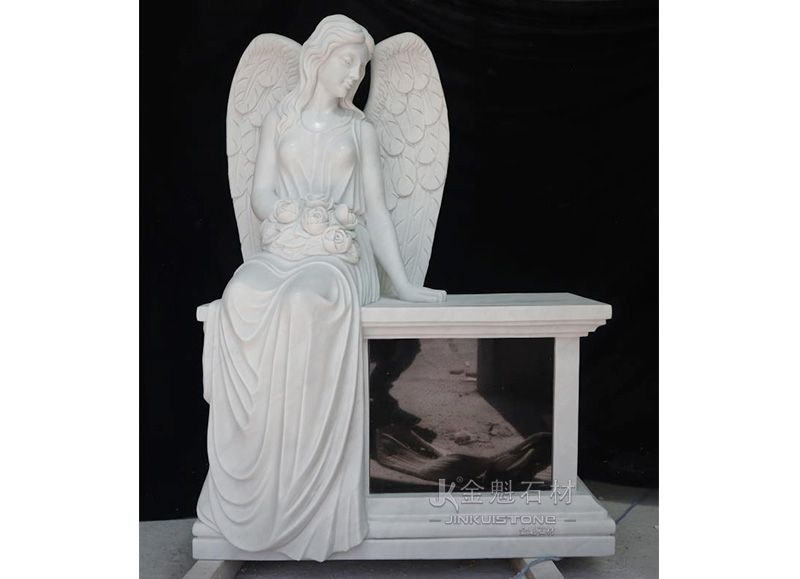Can Monument Benches Be Used As a Substitute for Conventional Headstones?
Monument benches are becoming a popular alternative to conventional headstones in cemeteries and memorial parks. These benches serve not only as a place of rest but also as a tribute to loved ones. But can they truly replace traditional headstones? Let’s explore how monument benches compare to headstones, and why some families might prefer them.
Functionality and Purpose
Monument benches combine the functionality of seating with the purpose of memorialization. Unlike headstones, which are purely symbolic markers, a bench provides a space for visitors to sit, reflect, and spend time near their loved one’s resting place. This added utility makes it an appealing option for those seeking a more interactive form of remembrance.
Traditional headstones, on the other hand, are simple, upright structures engraved with the deceased’s name, dates, and often a short epitaph. While they serve their purpose as markers of memory, headstones lack the practical functionality that benches offer.
Advantages of Monument Benches
Practical Function: Monument benches provide a place for visitors to sit and reflect. This feature is especially appreciated by family members who visit often or spend time at the gravesite.
Customization Options: Like headstones, monument benches can be customized with engravings, quotes, and artwork. Families can add personal messages, making the bench a unique tribute to the deceased.
Durability: Monument benches, especially those made from granite or marble, are highly durable. They can withstand outdoor conditions for many years, making them a lasting tribute.
Aesthetic Appeal: Benches can seamlessly blend with natural surroundings. Whether placed in a garden, park, or cemetery, they provide an elegant, serene place for reflection.
Potential Drawbacks of Monument Benches
Regulatory Restrictions: Not all cemeteries allow monument benches as substitutes for headstones. Families must check with cemetery management to ensure they meet all requirements before choosing a bench.
Space Considerations: Benches require more space than conventional headstones. In cemeteries where plots are closely packed, a bench may not be feasible due to space limitations.
Cost: Monument benches tend to be more expensive than standard headstones. Depending on the material and design, the cost can range from $2,000 to $6,000 or more, while a typical headstone might cost between $1,000 and $4,000.
Maintenance: While granite or stone benches are durable, benches made from wood or other materials may require more maintenance over time due to weather exposure.
Emotional and Practical Benefits
Monument benches offer a more personalized and emotional experience for visitors. Being able to sit at the gravesite allows people to spend more time in contemplation, creating a deeper connection with the memory of their loved one. This makes the bench a more interactive and comforting option for many families.
Conversely, some families may prefer the traditional gravestone for its simple, timeless nature. Headstones are often considered more traditional, aligning with cultural or religious customs that favor standing markers. For some, the visual prominence of a headstone is symbolic of the permanence of the deceased’s legacy.
Price and Value Consideration
When comparing the price of customized monument benches to traditional headstones, the cost difference may be a deciding factor. Monument benches typically cost more, especially if they are made from high-quality materials like granite or bronze. However, some families see the additional cost as worthwhile, given the functional benefits and emotional value that a bench offers.
Basic wooden benches can be more affordable, starting around $500, but these may not last as long as stone or granite versions. The durability and longevity of a bench, especially one crafted from high-end materials, might justify the price for families seeking a lasting tribute.
Conclusion
Monument benches can certainly serve as a substitute for conventional headstones, offering practical benefits and a unique way to remember loved ones. They provide a personal, functional space for visitors to sit and reflect, while also offering the customization options that families desire in a memorial.
However, there are considerations to keep in mind, such as cemetery regulations, space requirements, and cost. For those who prioritize a reflective, interactive experience, a Tombstone monument bench may be the perfect choice. Yet for families who value tradition, simplicity, and cost-effectiveness, a conventional headstone might remain the preferred option.
Ultimately, the decision between a monument bench and a headstone is a personal one, shaped by family values, cemetery rules, and the legacy they wish to leave for their loved one. Both serve as lasting tributes, but the bench offers a more dynamic and functional way to honor a life well-lived.


